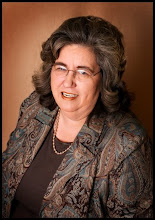Adults who experience disabilities have many of the same dreams that adults without disabilities have. Marriage is one of those dreams. Unfortunately, the same dream can bring complexities that might not occur for those without disabilities.
Based on contacts from parents since Parenting an Adult with Disabilities or Special Needs was published I wish I had dealt with the issue in more detail.
Finding that perfect mate brings up many issues by itself. Love, acceptance, and tolerance can be a challenge in any marriage; however, where one spouse must be able to tolerate or take on more than the average spouse it can become even more complicated. It is very awkward. Many people who don’t experience disabilities have made poor choices in spouses. Maybe things that were not obvious at marriage show up in later life and are not tolerable to one spouse. That can certainly be true for disabled adults too.
There is also the possibility of potential spouses who want to marry someone who experiences a disability for the wrong reason. We have all heard the horror stories about people who marry someone with special needs to take advantage of them financially. Others may genuinely want to take care of the person but once married it is not what they expected. Both situations can be devastating to the person with disabilities.
As parents, we want to protect our children and the tendency is to go to all extremes in that pursuit. Our objectivity in evaluating a proposed spouse might be compromised by our knowledge of our child’s needs. It might be harder to see the value of such a relationship to our adult children.
It is further complicated by laws both state and federal that impact a marriage. The Social Security Administration policies do affect marriage for a person classified as “Disabled Adult Child” for their purposes (usually drawing on a disabled or deceased parent’s claim). The adult child may lose all benefits including Medicare unless he marries another “Disabled Adult Child”. Even SSI recipients who are not classified as disabled adult children may lose a substantial part of their benefits if they marry.
I have heard of cases where a minister actually conducted a wedding and the bride and groom considered themselves “married” in the eyes of God but they were not legally married so they wouldn’t lose their benefits. I can only imagine the complications in those cases. Others have decided to marry anyway and lose benefits. The extreme poverty it brings further complicates their disabilities.
I have often thought that if Congress would only realize that Social Security
policies actually end up costing taxpayers more, maybe they would look at adding some flexibility. For example, if two people receiving disability benefits marry, they will lose part or all of their benefits. Suppose both were receiving funding for in-home support staff because it would not be safe to be alone but one support staff would be adequate for both. It also might be that they could help each other more and require less paid help.
Most states have their own laws about whether guardians can refuse a disabled person the right to marry even if it is not in their best interest. Thus, it is important to get legal advice from an attorney or advocacy center in your own area to determine how to adequately deal with the situation if it arises or, in the best-case scenario, to be prepared before it actually arises.
Until next time,
Peggy Lou Morgan
Follow me on Twitter
Follow me on Facebook
Websites:
Peggy Lou Morgan.com
Parenting Your Complex Child
Lighthouse Parents
Blogs:
Peggy Lou Morgan
Parenting A Complex Special Needs Child
Parenting an Adult with Complex Special Needs
Amazon Blog
Other Sites:
Wellsphere
Tangle (formerly GodTube)
Autisable
Saturday, October 31, 2009
Marriage Planning for Adults with Disabilities
Technical Glitches
I have been trying to follow the publicist assistant’s advice to combine the blogs for both of my books into one blog. However, I have been having great difficulty figuring out how to get the feeds to various places switched. For example, Wellsphere feeds one blog to their Autism community and the other to the Down syndrome community and they can’t feed the combined blog to both communities. I thought I had it fixed for Amazon Kindle readers but apparently not.
For now I am going to write posts of the two blogs and post both of them on the combined blog as well. Hopefully, I will get things switched at one point be down to one blog.
Thanks for your patience with me.
Peggy Lou
For now I am going to write posts of the two blogs and post both of them on the combined blog as well. Hopefully, I will get things switched at one point be down to one blog.
Thanks for your patience with me.
Peggy Lou
Subscribe to:
Posts (Atom)



